Relaxing bedroom ideas – how to create a more serene space, according to designers
From color to lighting, these relaxing bedroom ideas will help you create the most peaceful, sleep-inducing spaces
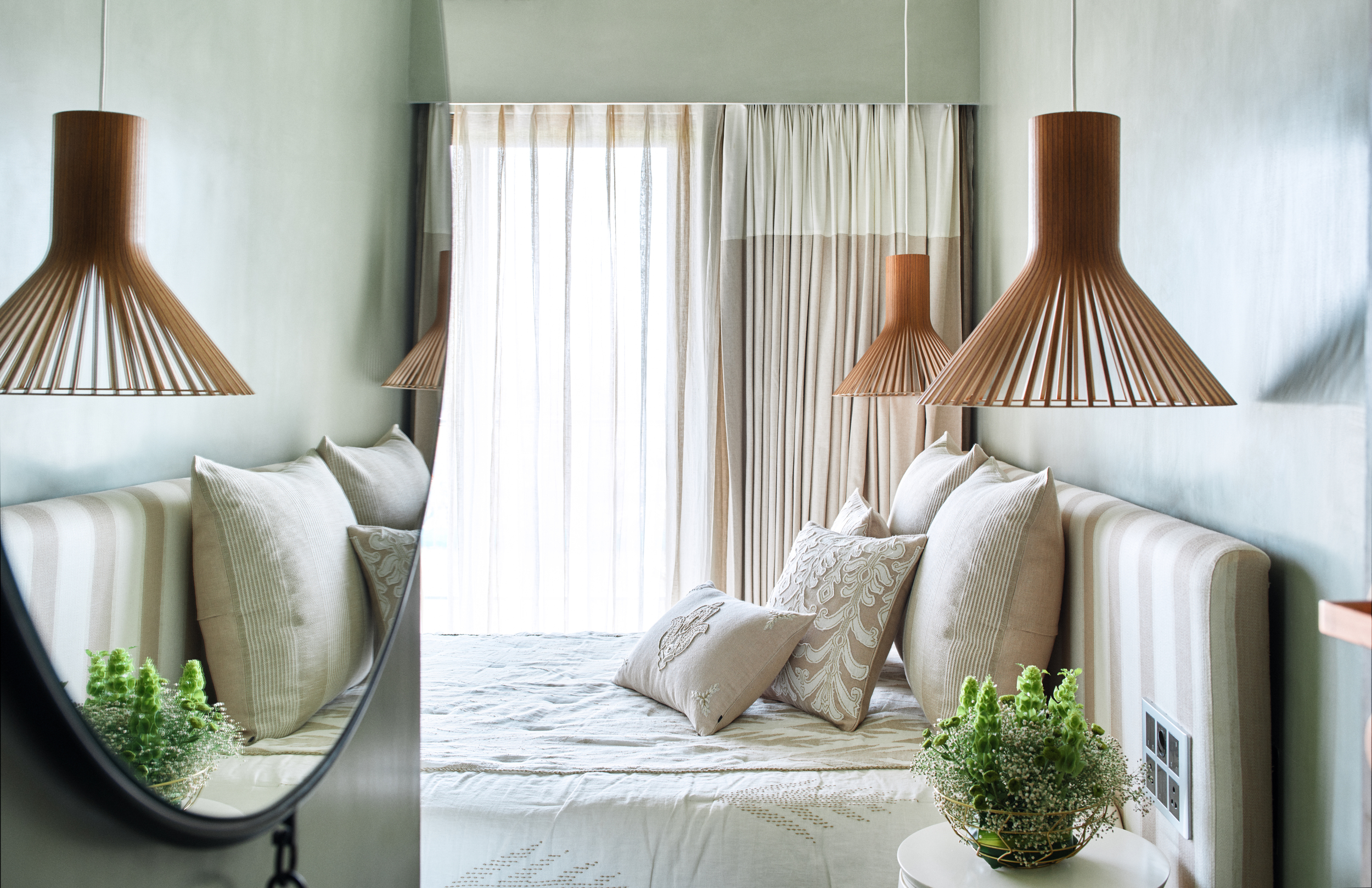

Relaxing bedroom ideas are what everyone wants for their space, but with life's hubbub, maintaining zen becomes difficult. Whether it's clutter that's keeping you up at night, or just a room that has an atmosphere the isn't helping you drop off to sleep, what should be a peaceful sanctuary can actually leave you anxiety.
If you're up for redesigning the space, then focus on bedroom ideas that are calming and relaxing. From the right paint colors, textures, and textiles to furniture pieces and more, there are plenty of great ideas you can work with to make this space the ultimate shaven for slumber.
To find some sure-fire ways to design a relaxing bedroom, we've asked interior designers for their top tips. Take a look at these eight ideas that will guarantee a good night's sleep and a stress-free bedroom.
8 relaxing bedroom ideas that will melt all your stress away
The easiest place to start creating a relaxing bedroom is with color. 'The colors you choose to surround yourself with are key to determining how a space will make you feel,' says Ruth Mottershead, creative director at Little Greene. 'Paint colors can have a dramatic impact on the atmosphere of a space, with warm and cooler evoking very different moods. It’s not just about considering the color, but also its subtle undertones, and the colors it will be sitting alongside as either painted surfaces or accessories within the space.'
1. Choose blue, beige or blush paints
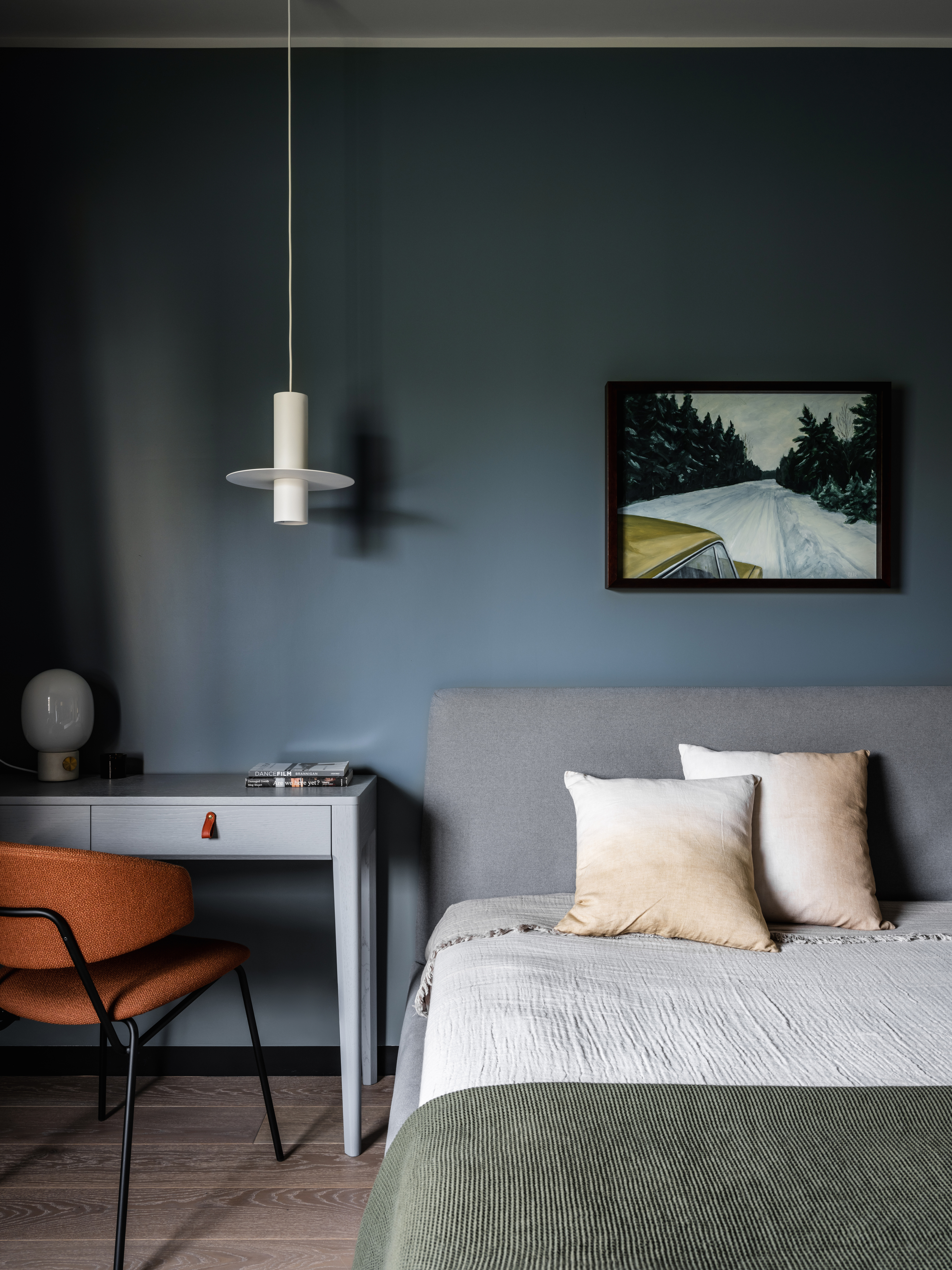
Choosing a palette for the bedroom isn't easy. This is the place where you sleep, laze about, dress, and even read or watch TV, and we want to ensure that every aspect of it is perfect. We want to personalize it and make it an expression of who we are.
For a relaxing modern bedroom, it's advisable to choose paint colors that have an inherently calming vibe; ones that put you at ease and help you to sleep. ‘When choosing colors, fluorescent hues, and especially fluorescent green can be distracting and anxiety-producing,' says Jennifer Morris, principal designer at JMorris Design. 'I advise homeowners to stay away from them, especially if you have a small apartment.’
So know you know the colors to avoid in a bedroom, but which should you try? Soft tones of beige and pink work well and allow one to calm down. 'A neutral beige comes to mind when I think of a relaxing bedroom,' says Joshua Smith, principal designer of Joshua Smith Inc. 'Some may think it's boring, but beige is a warm, earthy color that isn't too distracting which makes it perfect for a bedroom. If you want to add more color to a room, a soft hue of blue can be a great option as it's still a very calming color and not too busy on the eyes.'
'Benjamin Moore's Warm Blush has an emotional effect that's cozy for the bedroom,' says Kellie Burke, principal designer at Kellie Burke Interiors. 'It’s a great neutral. And, Benjamin Moore's Lavender Mist is perfect for a calming, peaceful, zen space. Mix it with sharp whites for a look that feels clean and fresh.'
2. Or go for an earth tone bedroom
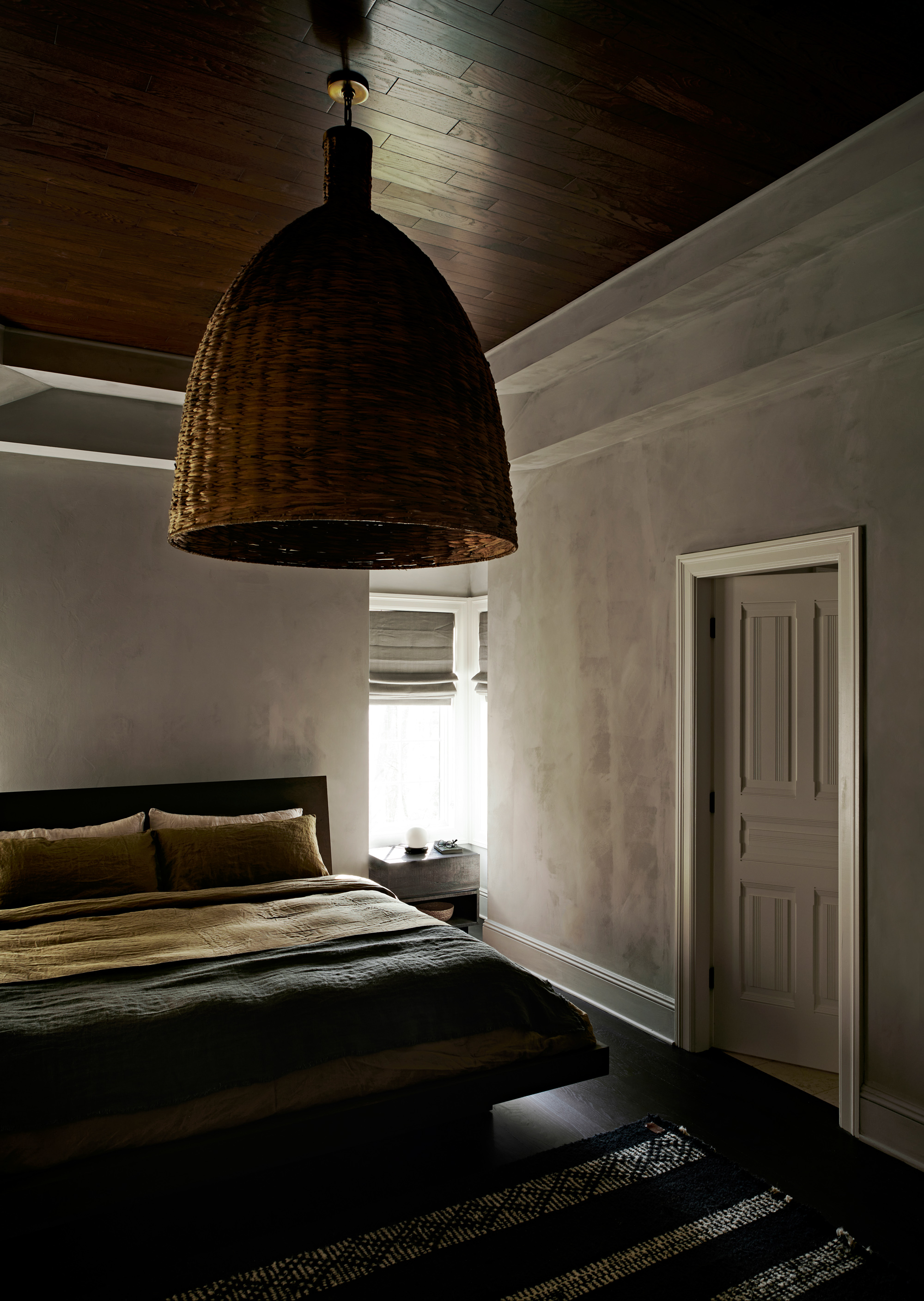
Earthy hues are not only warm but also comfortable to spend time in. Plus they work great as contrasts with other hues.
If you want an eternally relaxing space, go for earth tone bedroom ideas.
'When I think of relaxing paint colors for bedrooms, my mind immediately goes to earth tones,' says Lauren Harmon, designer at JL Design. 'The calming and peaceful emotions that nature can evoke are the same feelings we desire to create when designing one's bedroom. The palette of earth tones is forever changing and evolving, but two of my current favorites are Sherwin Williams Jubilee and Benjamin Moore Dry Sage.'
In this bedroom, the tactile walls are complemented with a cane lighting piece and dark flooring. The wooden ceiling adds a touch of warmth and a feeling of a hug. 'Earthy hues reminiscent of the landscape, shades of pebble grey, and greens against deep wooden tones are used throughout,' says Melissa Lee, principal designer at Bespoke Only.
3. Update the room with natural elements
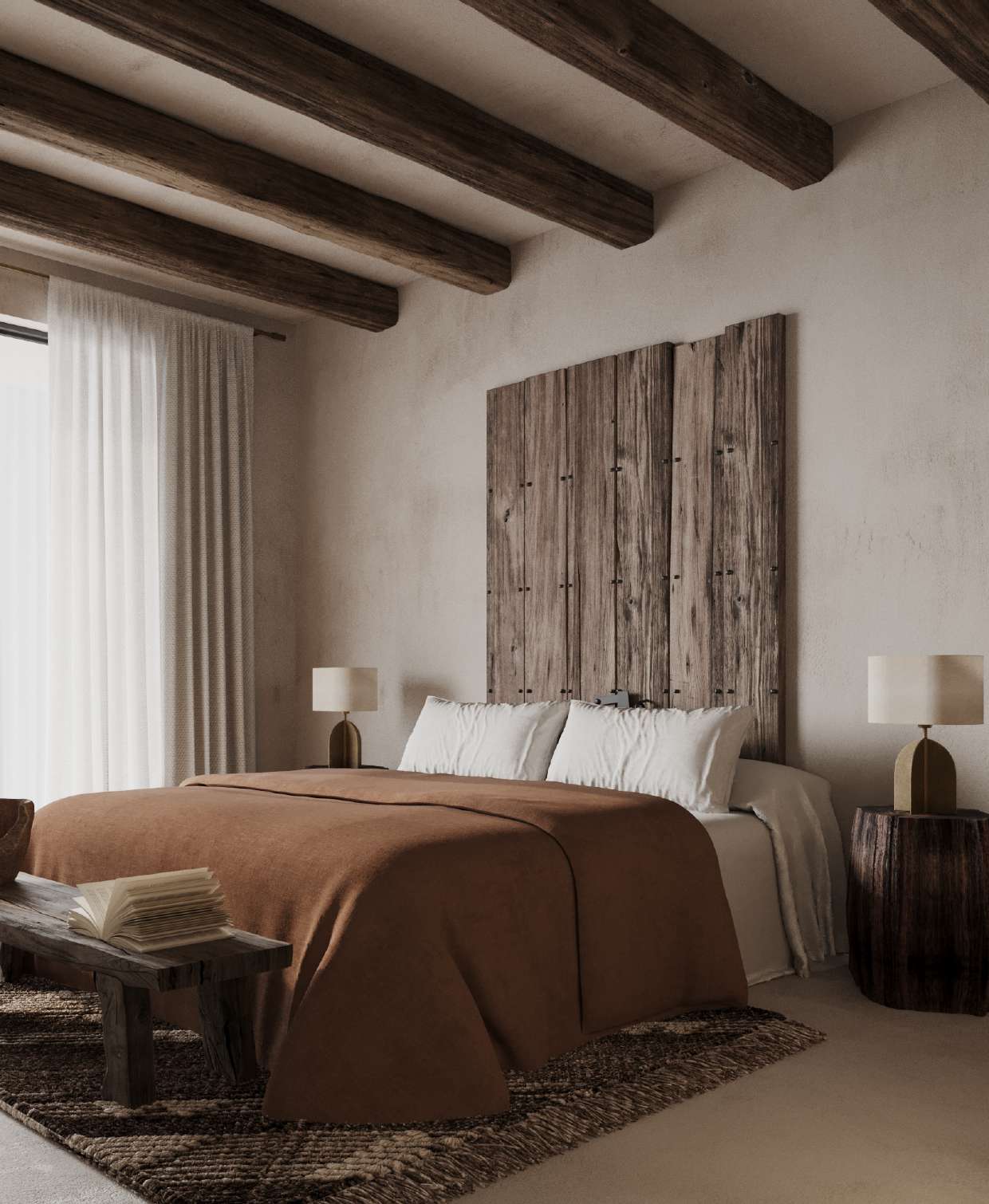
Organic, textural elements like pebbles, live-edge wood, stone, clay, and even linen give a space an inviting, warm, and balmy feeling. Humans have a deep connection to nature and bringing these elements into interiors, especially in master bedrooms, helps create a snug, tranquil space. It's part of the make up of biophilic design, a practice which outlines the positive effects on health and wellbeing of creating links to nature in your home.
Even bamboo mats, shoji screens, and beams, walls and floors with grainy wood help create a relaxing bedroom. Remember when it comes to natural elements, even sunlight plays a major role and helps freshen up spaces.
4. Consider mood lighting to create a sleepy haven
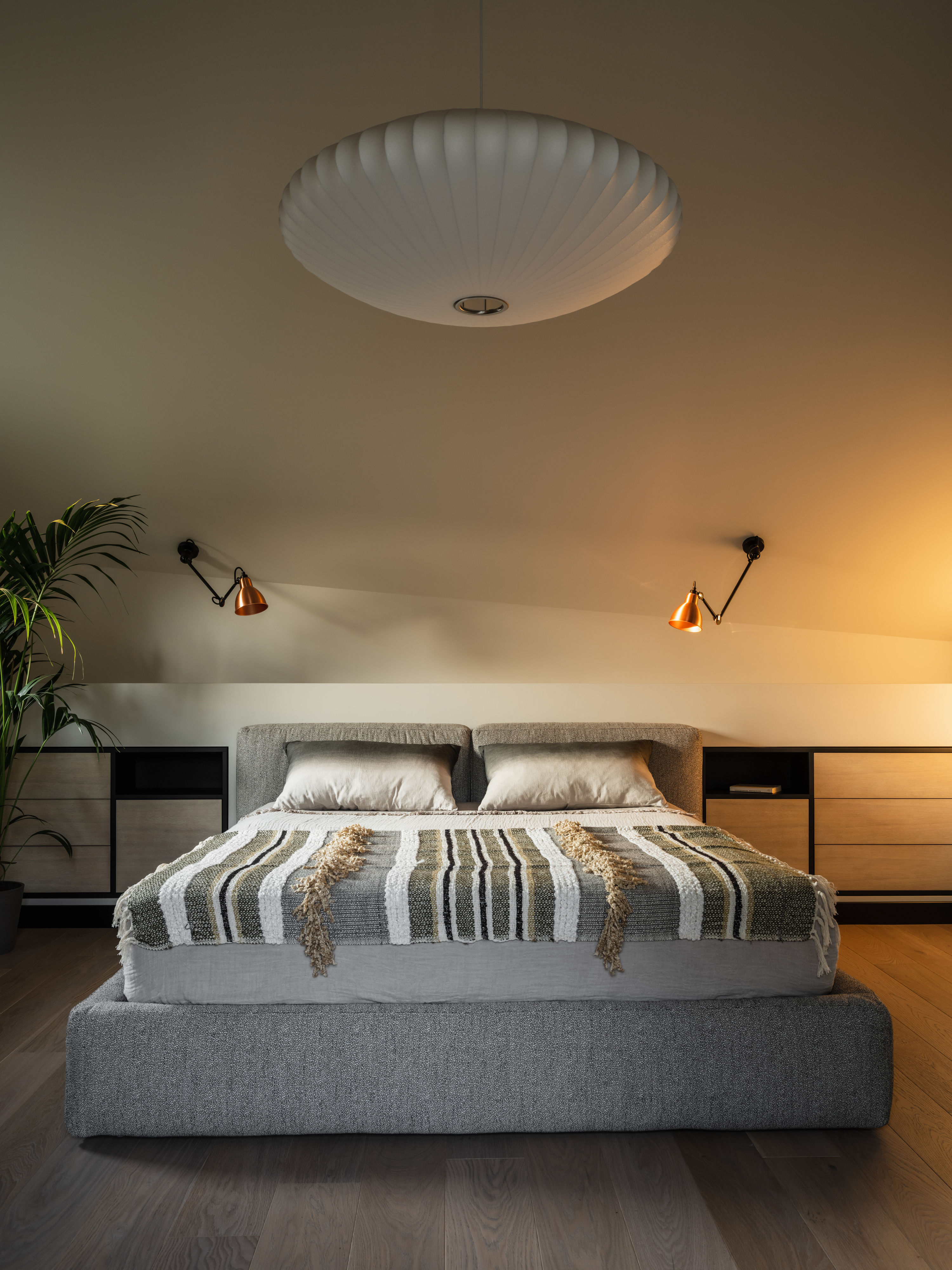
Getting the balance right between task, directional and accent lighting can be a bit of work in the bedroom. You want the room to be well-lit so you can carry out your daily tasks, and get ready, and you also need to ensure you have bedroom lighting that doesn't hamper a good night's sleep.
'We recommend table lamps for symmetry in a bedroom and a large pendant for balance and sconces for spaces that you want to keep streamlined and minimalist for a moody room,' says Lance Thomas, founder of Thomas Guy Interiors. 'We try to eliminate the use of recessed, overhead lighting, which will remove the striking shadows a room creates in the evening. We like to incorporate a mixture of antique finds and more modern, artisanal-focused brands. Our go-to sources include Baker, Visual Comfort, Century, and Verellen as well as sourcing antiques during our travels.'
'Lighting is so important to our general well-being. Once night time rolls around, I would add layers of lighting,' says Mel Bean, founder of Mel Bean Interiors. 'If you have art in your bedroom, for instance, highlight it with directional lights on a dimmer switch in combination with bedside tables or if you’re using sconces or floor lamps–avoid using harsh, overhead lighting if you can. As a final layer, consider using gorgeous chandeliers or pendants, which can be used for functional brightness or mood lighting.'
5. Freshen up the interior with tall, leafy plants
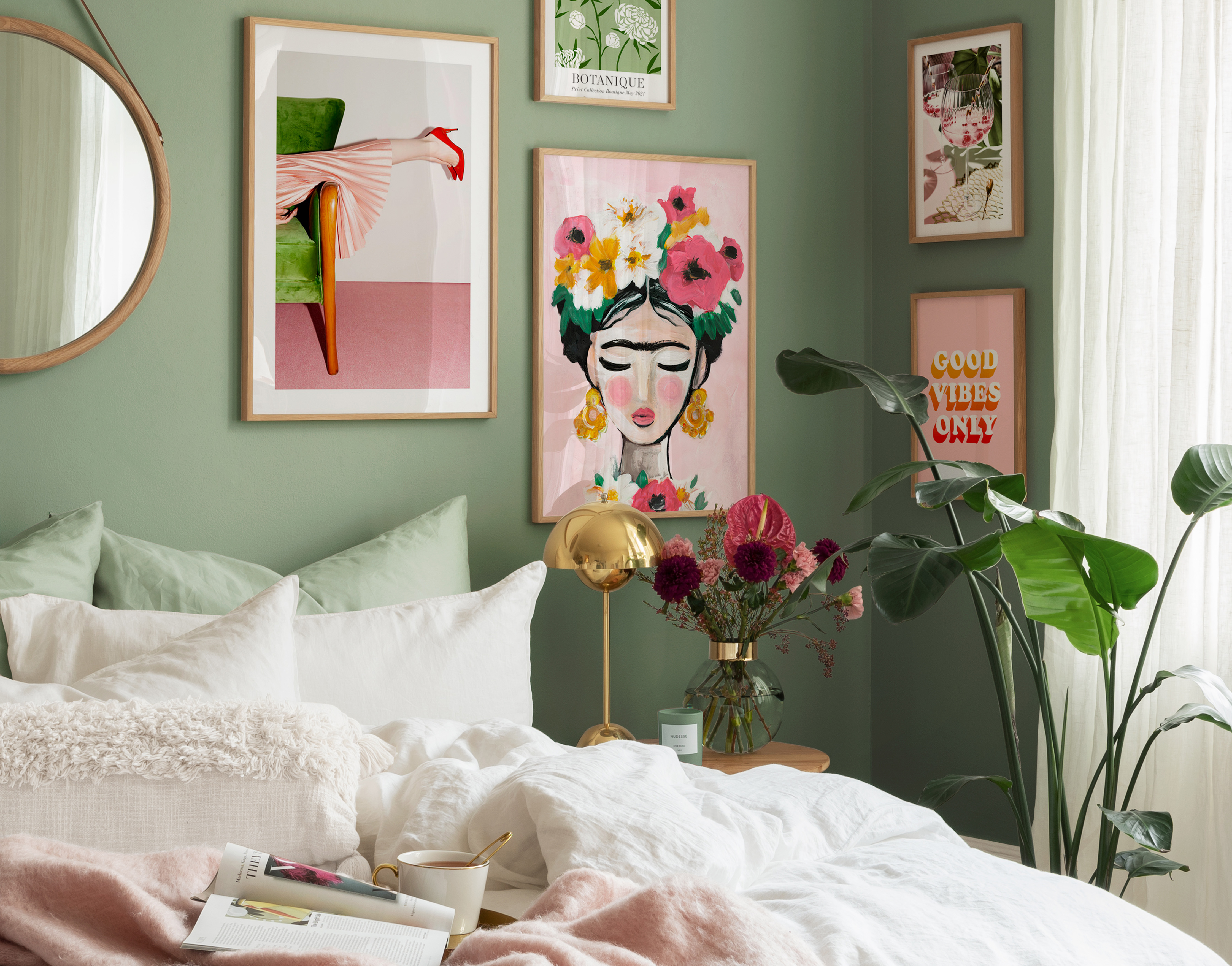
If we were to think of a single ingredient that could make any space better, we'd probably choose plants. Just the sight of a happy, green, tall, healthy plant can have a big psychological impact on a person. Greenery instantly makes a room feel fresh and welcoming and invariably relaxing.
Indoor plants also help purify the air. If you have the space, the heart, and the green fingers for it, bring in some greenery in your bedroom. You could choose from Fiddleleaf Fig, Pothos, Spider Plant, Succulents, or if you have a large bedroom, then even a palm or a Madagascar Dragon Tree are great bedroom plant ideas.
6. Add wool or fur rugs for a soft underfoot
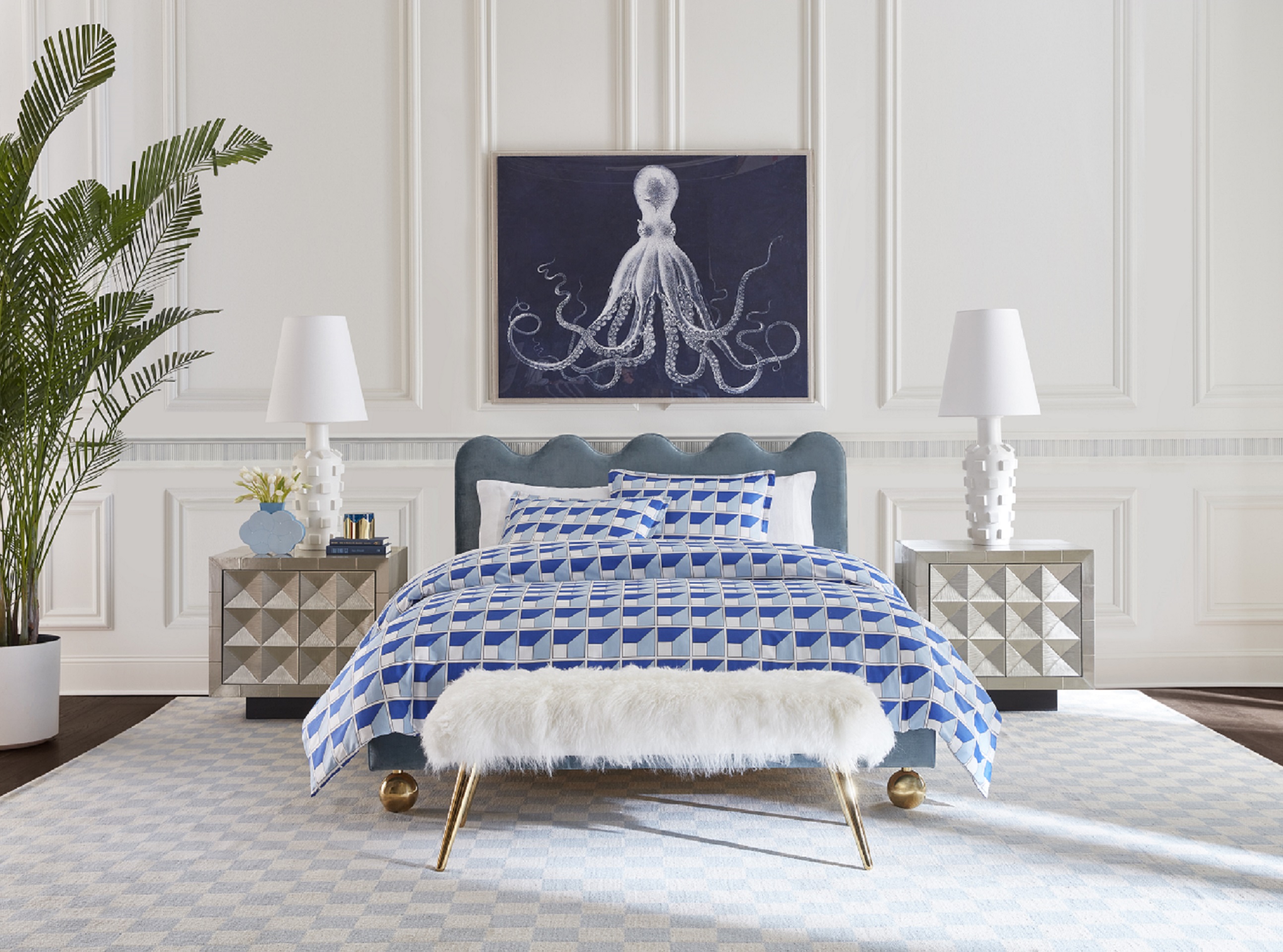
Imagine you wake up in the morning, and as you put your feet on the floor, you feel a plush, velvety rug that immediately puts you in a good mood. With the right bedroom rug in place, you'll always feel you wake up on the right side of the bed.
You can choose from wool, nylon, and wool-nylon blends but for more luxurious options, go for alpaca and wool-silk blends. A pure wool carpet ages gracefully and always looks fresh, plus it's easy to maintain.
'Ground your bedroom in luxury with a hand-woven 100% wool rug with high knot counts for maximum durability and softness,' says interior designer Jonathan Adler. 'Channel neutral nirvana with a plush rug that's light and bright, but luxuriously livable.'
7. Keep the TV and home office out of the bedroom

Don't allow your bedroom to moonlight as a home office or home theatre. If you want to sleep better, there are a few things, items, or elements you need to change to make sure the space is as tranquil as possible. The presence of a TV will tempt you to watch it in the wee hours, and disrupt your sleeping pattern. And, a home office in the bedroom means your work is always on your mind.
For better bedroom Feng Shui, Dana Claudat, Feng Shui Master, The Tao of Danasays, 'I have some clients who feel they must watch TV while lying in bed, and if it's essential, try to turn off the TV completely before bed.'
'When we're asleep, we are mentally impressionable,' Dana adds, 'so, it's a great practice to keep the TV off while sleeping to avoid taking in all that streaming TV information. Allow your mind and body to fully revitalize when in bed.'
Declutter your room and make it a space that only encourages lounging around and sleeping.
8. Enrich the indoor fragrance with scented candles or diffusers
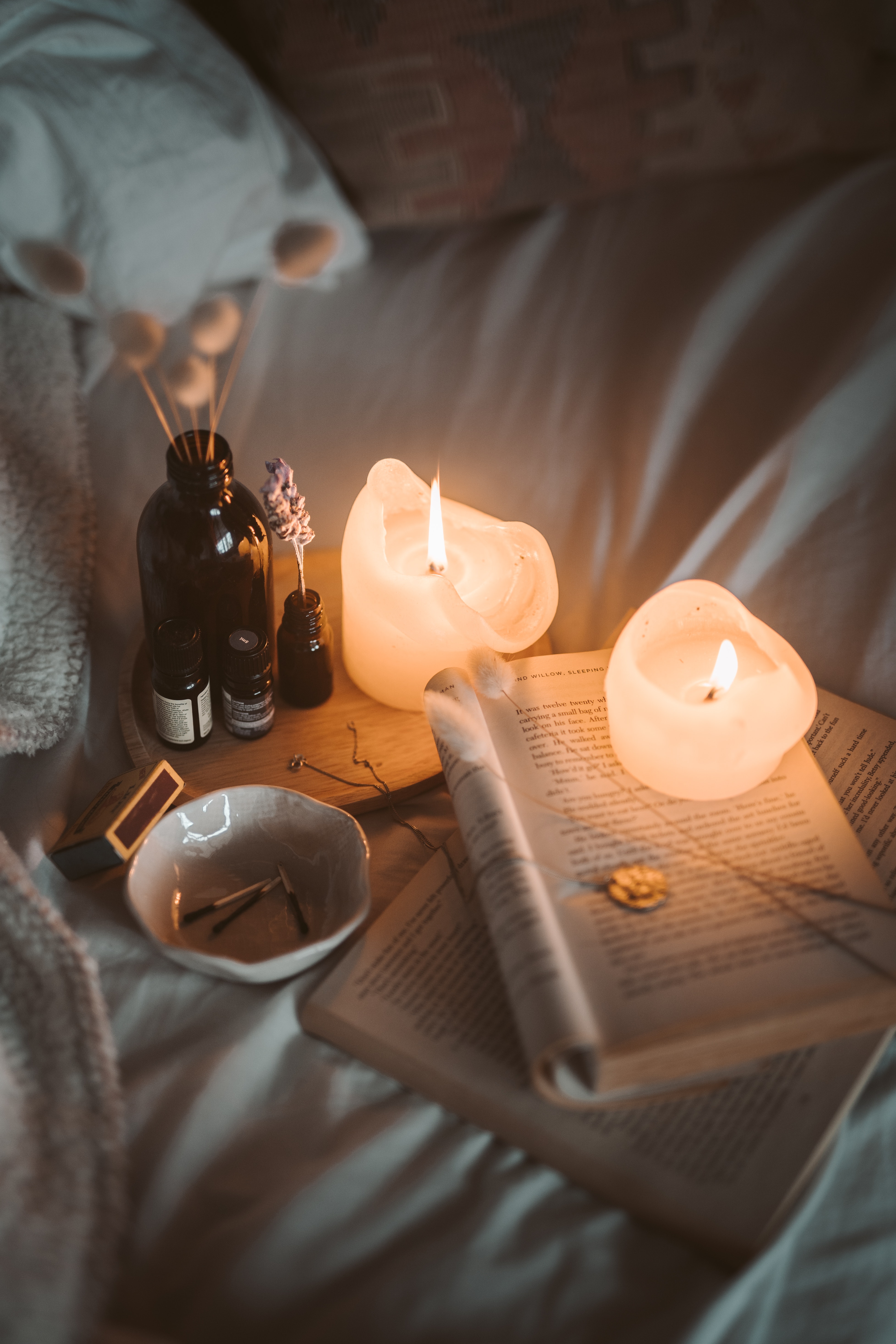
Another great way to create a calm vibe inside your room is through sensorial elements. Candles and scented diffusers are great for relieving stress and for reminding us of our favorite places and memories. Salt lamps can have a similar effect and help you to find your zen.
You could even add fresh flowers by your bedside to fill your room with color and a beautiful scent. Add bedroom plants to clean the air in your room.
How can I make my bedroom happier?
The biggest consideration for a happy, calm, pretty bedroom is to keep it as decluttered as possible. The lesser items there are, the more breathing space you will have in the home. Clean the space every week and make it a ritual to wash your linen often so your room looks crisp, fresh, and clean, just ready to sink into.
A fresh coat of paint in relaxing, mood-changing hues is a must. Creamy ivory, grey, blush, and blue tones work exceptionally well in a bedroom that encourages sleep. Similarly, a good aroma evokes happy memories of cozy holidays, family time, and all things endearing. To calm you down, go for a scented candle or diffuser, and make your bedroom serene.
Choose super-soft, plush bedding, a 100% wool or fur rug, and an orthopedic bed to ensure your entire room is the most therapeutic space. Add plants to purify the indoor air and finally, ensure this room is a tech and gadget-free zone.
Be The First To Know
The Livingetc newsletters are your inside source for what’s shaping interiors now - and what’s next. Discover trend forecasts, smart style ideas, and curated shopping inspiration that brings design to life. Subscribe today and stay ahead of the curve.

Aditi Sharma Maheshwari started her career at The Address (The Times of India), a tabloid on interiors and art. She wrote profiles of Indian artists, designers, and architects, and covered inspiring houses and commercial properties. After four years, she moved to ELLE DECOR as a senior features writer, where she contributed to the magazine and website, and also worked alongside the events team on India Design ID — the brand’s 10-day, annual design show. She wrote across topics: from designer interviews, and house tours, to new product launches, shopping pages, and reviews. After three years, she was hired as the senior editor at Houzz. The website content focused on practical advice on decorating the home and making design feel more approachable. She created fresh series on budget buys, design hacks, and DIYs, all backed with expert advice. Equipped with sizable knowledge of the industry and with a good network, she moved to Architectural Digest (Conde Nast) as the digital editor. The publication's focus was on high-end design, and her content highlighted A-listers, starchitects, and high-concept products, all customized for an audience that loves and invests in luxury. After a two-year stint, she moved to the UK and was hired at Livingetc as a design editor. She now freelances for a variety of interiors publications.
-
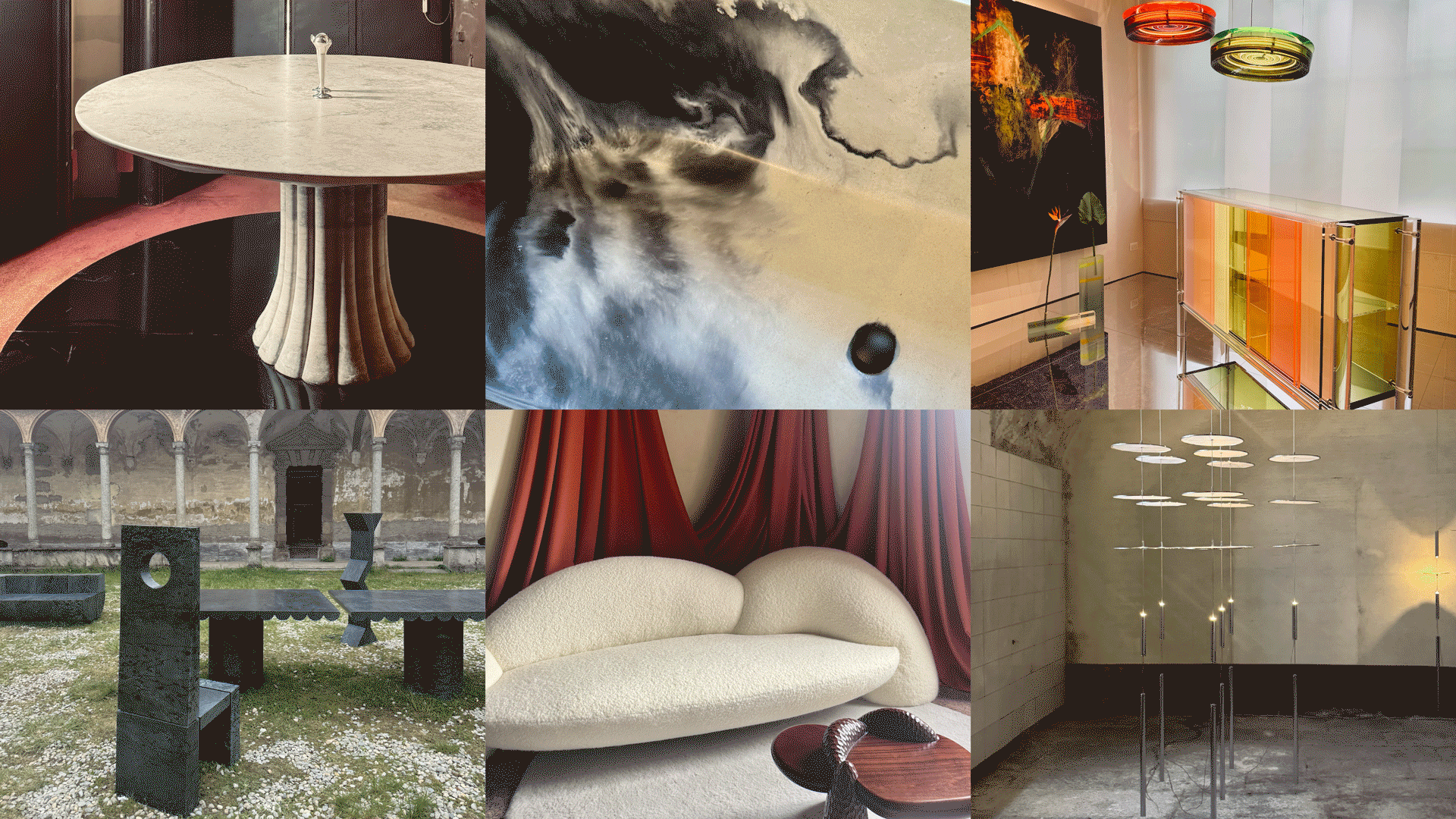 Straight from Salone: Five Emerging Trends I Found That'll Shape Interiors For the Year Ahead
Straight from Salone: Five Emerging Trends I Found That'll Shape Interiors For the Year AheadFrom reflective silver to fluidity, here's my perspective on the key themes and new moods coming through from Milan Design Week
By Sarah Spiteri Published
-
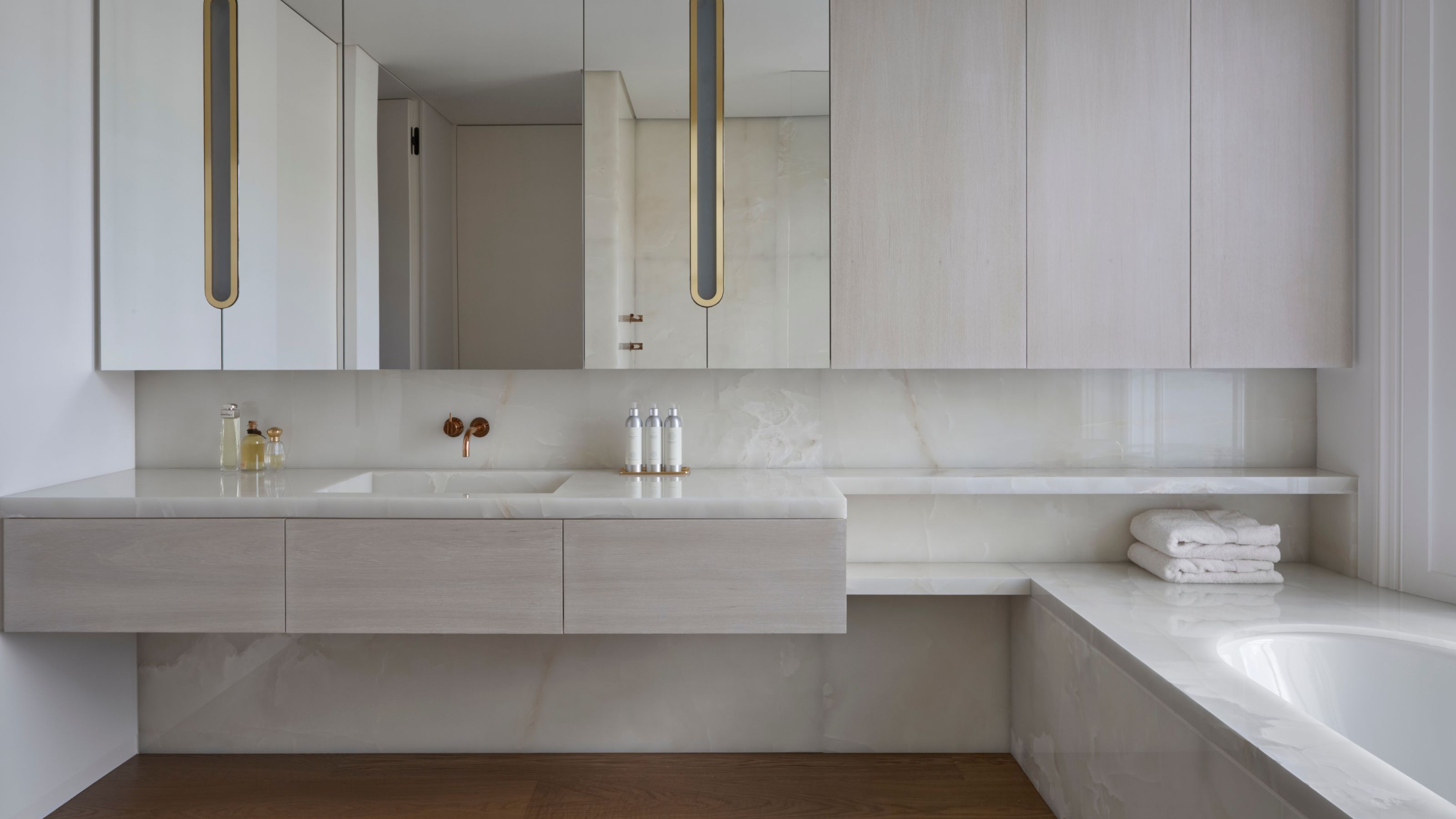 9 Bathroom Storage Mistakes You're Probably Making That Make Using This Space Much Harder — And What to Do Instead
9 Bathroom Storage Mistakes You're Probably Making That Make Using This Space Much Harder — And What to Do InsteadDiscover which mistakes are to blame for your overcrowded and cluttered bathroom
By Seraphina Kyprios Published